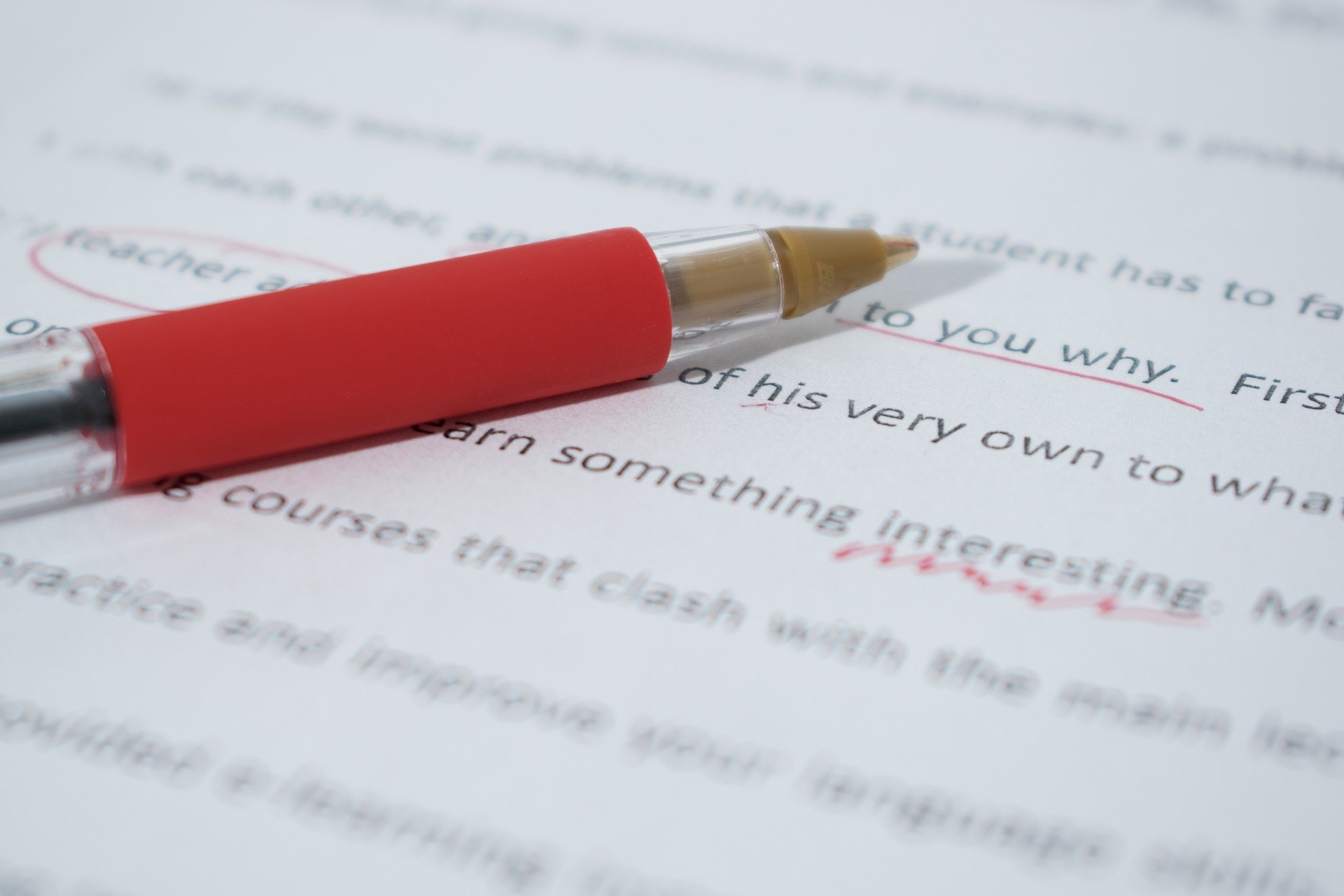Taking English grammar exercises can gauge your English level and help your progress as a beginner. Once you know your score, you will know by how much you need to study to progress to the level you need to be for a purpose. If you know and understand the correct usage of Verbs, Nouns, Pronouns, Adjectives, Adverbs, and sentence structure, you will surely pass these English grammar exercises.
English grammar exercises with tips
Here are 25 grammar exercises with tips to help you progress in learning English Grammar by giving you the rules you need to apply in making the correct answer choice. Let’s try this.
1. I’m really looking forward ….. this movie.
A. to finish
B. finishing
C. finish
D. to finishing
Tip 1: “Looking forward to” is a specific verb pattern in the English language. The “to” in the verb pattern is a preposition followed by a noun phrase or an -ing verb form. Consider that we’re talking about Present Continuous (expressing the future).
2. Don’t start ….. to me about it. You know it’s not important.
A. to complaining
B. complaining
C. complain
D. in complain
Tip 2: The verb “start” can be used with an infinitive or -ing. If you’re using an infinitive version, you should have start + to do (smth) and in the case of -ing, start + ing. See other examples of this case here:
3. Choose the best statement.
A. I told him that he come home at once .
B. I told he come home at once.
C. I told him to come home at once.
D. I told,’come home at once!’
Tip 3: The sentence describes a person directing someone to take action – “come here at once.” In this case, you have to use an element that represents an action – to do + something. Take into account that the verb “told” needs to have a direct object next to it.
4. My daughter….. me to go to the hospital
A. told
B. said
C. saying to
D. telling to
Tip 4: This is another example of a person directing someone to do an action. Use to do + something and notice how Elizabeth is a direct object in the sentence.
5. Have you phoned the restaurant about the booking? Yes, I’ve …..done that.
A. still
B. already
C. yet
D. now
Tip 5: The answer starts by respondent saying yes, meaning that the respondent has booked the restaurant. Rule out the answers that indicate that the booking has not yet happened.
6. There ….. spectators at the match.
A. were no
B. weren’t no
C. were any
D. were not
Tip 6: To form a, “there were” sentence, you will need to have There + were + determiner + object. Follow the logic of the sentence and disregard the answers that are double negative – double negative means positive.
7. If I won the lottery, I ….. a house in the country.
A. will buy
B. have bought
C. would buy
D. would have bought
Tip 7: To fill in the correct answer, revise the second conditional rules. The structure usually goes like this >> If + past tense + would + infinitive. Read more about it here:
8. Have you sent that fax to Mr. Jones? Yes, I’ve …..done that.
A. still
B. already
C. yet
D. now
Tip 8: https://www.grammar.cl/Notes/still-yet-already.htm
9. “….. have you been waiting?” “Only a few minutes”
A. How long
B. How long time
C. What time
D. For how long
Tip 9: https://www.youtube.com/watch?v=qzOsAZJhkqk
10. They weren’t surprised and nor ….. I.
A. weren’t
B. wasn’t
C. were
D. was
Tip 10: Remember the difference between the subjunctive and the past tense of “to be” WAS and WERE. Use WERE when you’re describing a hypothetical situation and WAS when you’re describing a reality.
11. I …..getting up early.I do it every day.
A. used to
B. used
C. am used to
D. would
Tip 11: Revise the difference between used to + infinitive and used to + ing. They are similar but have different meanings and uses. We use “used to + infinitive” to describe a past situation that is no longer true. We use “used to + ing” to describe something that we know very well and is no longer strange to us.
12. The letter ….. yesterday, but I don’t know for sure.
A. may arrive
B. might arrived
C. should arrive
D. may have arrived
Tip 12: In this sentence, we are talking about probability in the past with the least certainty. Use Perfect Infinitive “to have + past participle.”
13. We ….. better study more if we want to pass the exam
A. would
B. should
C. had
D. ought
Tip 13: In this sentence, we are talking about the use of modal verbs in obligation and advice situation. We can clearly see the suggestion in the present with advice to avoid a negative effect in the future
14. That’s the woman ….. I saw stealing the handbag!
A. whom
B. where
C. what
D. whose
Tip 14: Review the rule of using relative pronouns.
15. ….. is it from Dubail to India?
A. How much distance
B. How long
C. How far
D. How many
Tip 15: In the sentence, we are trying to define the distance between to places. Remember the modifiers that you can use with distance and choose the correct answer after thinking it through.
16. If you get bored, call me ….. you like, and we can go for a drink.
A. whenever
B. soon
C. always
D. whatever
Tip 16: Use the adverb that suits the situation that is not unique, and the time is uncertain.
17. In the beginning, the street was noisy, but now I…………it
A. used to
B. used
C. am used to
D. would
Tip 17: The sentence describes something that was unusual, at first, but now the speaker got accustomed to it. Revise the difference between “used to” and “am used to.” They have different meanings but look alike.
18. After his girlfriend left him, his boss was the …….of his worries
A. less
B. least
C. fewer
D. last
Tip 18: The sentence means that the speaker has more important problems than his boss. Less and least are used to talk about inequality by focusing on the ‘lower’ end of the cycle. Less is the comparative form. It is followed by than. Least is the superlative form.
19. The woman…. by the table is his sister, not his mother.
A. whose
B. is standing
C. standing
D. stands
Tip 19: You need a participle (a word formed from a verb that can be used as an adjective) to describe the woman.
20. ….. does it take to travel from Barcelona to Madrid?
A. How far
B. How long
C. How much distance
D. How many
Tip 20: We use how long to talk about the amount of time something takes.
21. I have to catch the 5.00 am bus tomorrow, so I ….. go to bed early.
A. needn’t
B. haven’t
C. have to
D. have had to
Tip 21: The modal verb ‘have to’ is used to mean that something is necessary. It is used in affirmative way in sentences.
22. She ….. go to the dentist’s yesterday.
A. must
B. had to
C. ought to
D. must to
Tip 22: The word “yesterday” indicates the action happening in the past. Use the modal verb, which is in the past tense.
23. The man ….. in the corner is my father.
A. whose
B.sitting
C. is sitting
D. sits
Tips 23: You will need to use a participle phrase to answer this question correctly. A participle is a word formed from a verb that can be used as an adjective. Participle phrases also act as adjectives and describe the objects. In this case, our participle phrase (which you have to find) describes the man.
24. “Those bags look heavy” “….. carry one for you?” “That’s very nice of you”
A. Will I
B. Do I have
C. Shall I
D. Do I
Tip 24: The speaker makes an offer in this sentence. Try to remember the modal verb, which can be used in a situation like this.
25. Don’t forget ….. those letters.
A. to post
B. posting
C. to posting
D. post
Tips 25: Some verbs can be followed by either a gerund and infinitive. See how meanings change when Remember and Forget are followed by a gerund or an infinitive.
Memorizing rules and applying them is the rule of thumb. Not everything can be explained but there are rules as those for conjugating irregular verbs which one must apply regularly to everyday conversation.
For more practice, subscribe to more English Exercises here.
Refer to the key to get the correct answers AFTER doing the exercises. Use the answer key to get your score: correct answers/25 x 100%
For example, a score of 20 correct answers will get you a proficiency level of 20/25 x 100% or 0.8 x 100% or 80%, or a proficiency level of Very Good.
Proficiency level:
100 – 90 – Excellent
89 – 80 – Very Good
79 – 70 – Good
69 – below – Needs Improvement
Answer key:
1. A 16. A
2. B 17. C
3. C 18. B
4. A 19. C
5. B 20. B
6. A 21. D
7. C 22. B
8. B 23. B
9. A 24. C
10. C 25. A
11. C
12. D
13. B
14. A
15. C







